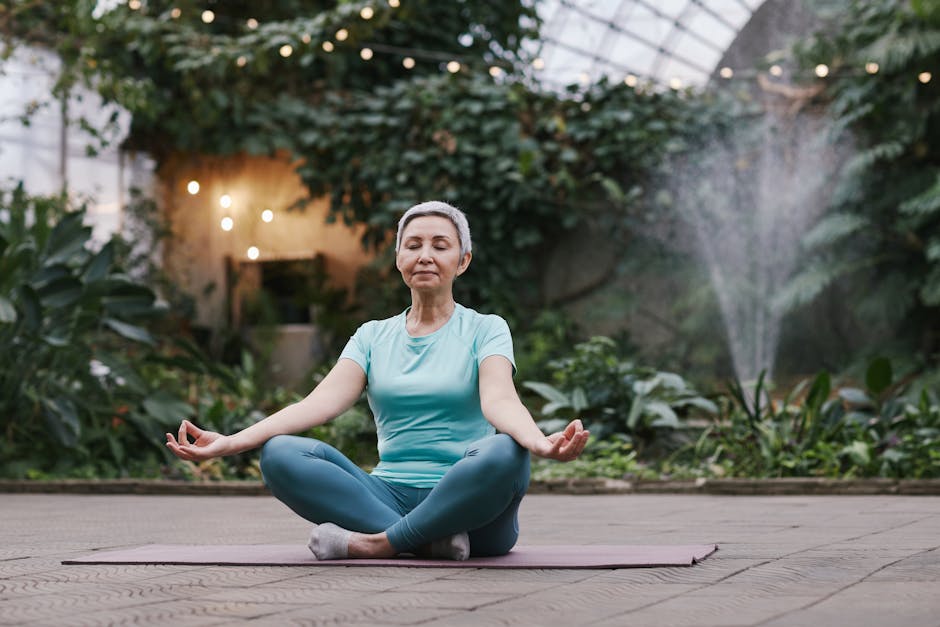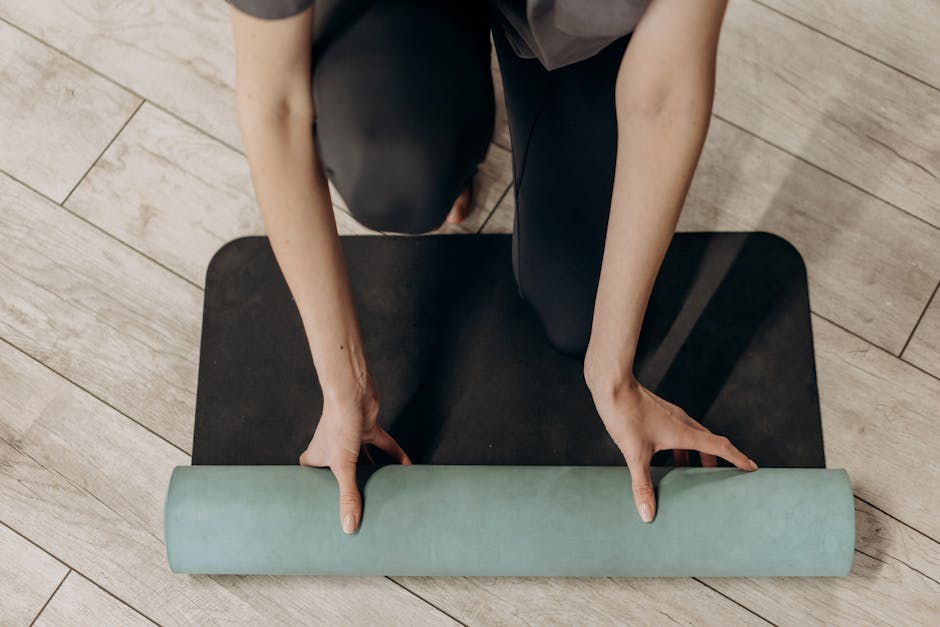Sweating it out on the treadmill or taking a brisk walk might do more than just burn calories; it could also give your immune system a welcome boost. Understanding how regular exercise can fortify your body’s defenses against illness is not just interesting – it’s essential for anyone looking to live a healthier, more resilient life.
Key Takeaways
- Regular exercise can stimulate the production and effectiveness of immune cells.
- Physical activity may cause a temporary rise in body temperature that helps fight infection.
- Improved sleep quality, associated with regular exercise, is crucial for a strong immune system.
- Exercise can reduce the risk of chronic diseases that may weaken the immune system.
- Regular physical activity is known to alleviate stress and depression, which can negatively affect immune health.
- Anti-inflammatory effects of exercise contribute to a less illness-conducive internal environment.
- While moderate exercise strengthens the immune system, intense exercise can temporarily weaken it.
Introduction to Exercise and Immune System Health
Overview of immune system functions
The immune system is your body’s personal security detail, working tirelessly to identify and neutralize threats like bacteria, viruses, and other pathogens. It’s a complex network of cells, tissues, and organs that collaborate to protect you from illness.
General benefits of regular exercise on health
Regular exercise is a cornerstone of good health, reducing the risk of chronic diseases such as obesity, heart disease, and type 2 diabetes. But beyond these well-known benefits, physical activity also plays a significant role in bolstering your immune system.

Cellular Immunity Enhancement Through Exercise
Stimulation of cellular immunity by physical activity
When you exercise, your body’s immune cells circulate more rapidly, increasing their chances of detecting and responding to pathogens. This heightened state of surveillance is one of the ways exercise helps keep you healthy.
Role of exercise in promoting immune cell production
Physical activity can boost the production of immune cells, such as lymphocytes and natural killer cells, which play a critical role in responding to infections.
Impact on macrophages and other immune cells
Exercise also activates macrophages, the ‘big eaters’ of the immune system, which devour bacteria and dead or infected cells, keeping your body clean on a cellular level.

Exercise-Induced Temperature Increase and Infection Prevention
Body temperature rise during and after exercise
Just like a fever, exercise increases your body temperature, which can help fight infection. This temporary rise in temperature may prevent bacteria from growing and can help the body repair itself more quickly.
Similarities to fever in combating bacteria
The heat generated during a workout mimics the body’s response to infection, creating an inhospitable environment for harmful pathogens.
Short-term immune system boost post-workout
After exercising, your body experiences a short-term boost in immune system performance, a phenomenon often referred to as the “afterburn” effect.

Improvement of Sleep Quality via Regular Physical Activity
Connection between sleep quality and immune strength
Good sleep is a critical component of a well-functioning immune system. It’s during sleep that the body repairs and regenerates immune cells.
Effects of poor sleep on susceptibility to illness
Lack of sleep can make you more susceptible to illness by reducing the production of infection-fighting antibodies and cells.
Exercise as a tool for enhancing sleep patterns
Regular physical activity can help regulate your sleep patterns, ensuring that your immune system gets the downtime it needs to fight off illness. Learn more about the mind-body connection and the immune system.

Reduction of Chronic Disease Risk Through Exercise
Impact of physical activity on heart disease and diabetes
Exercise is a powerful tool in reducing the risk of chronic diseases, which can compromise the immune system over time.
Chronic diseases and their effect on immune function
Conditions like heart disease and diabetes can impair the immune system, making it easier for infections to take hold.
Exercise as a preventive measure for chronic conditions
By engaging in regular physical activity, you can help prevent these diseases and maintain a robust immune system. Discover more about physical health and its importance.

Exercise as a Stress and Depression Reliever
Psychological benefits of regular exercise
Exercise is a natural mood booster, thanks to the release of endorphins, which can help alleviate feelings of stress and depression.
Decrease in stress levels through physical activity
Lower stress levels can lead to a stronger immune system, as chronic stress can suppress immune function.
Alleviation of depression and its impact on immune health
By reducing symptoms of depression, exercise can indirectly support immune health. Find out how regular physical activity boosts our mood.
Anti-inflammatory Effects of Exercise
Exercise’s role in reducing inflammation
Chronic inflammation can lead to a host of health problems, but exercise can help reduce this inflammatory response.
Creation of an internal environment less conducive to illness
A body with lower levels of inflammation is less likely to succumb to infections and diseases.
Long-term benefits for immune system function
Regular, moderate exercise can lead to long-term improvements in immune system health by keeping inflammation in check.

Production and Efficiency of Immune Cells Boosted by Exercise
Enhancement of immune cell effectiveness
Exercise not only increases the number of immune cells but also enhances their efficiency in fighting off pathogens.
Exercise’s influence on bacteria and virus-fighting cells
By improving the function of cells that target bacteria and viruses, exercise helps your body mount a more effective defense against infections.
The “Open Window” Theory of Intense Exercise
Risks associated with prolonged and intense physical activity
While moderate exercise is beneficial, intense and prolonged physical activity can create an “open window” where the immune system is temporarily lowered.
Temporary alteration of immune function
During this window, the body may be more susceptible to infections, highlighting the importance of balance in exercise routines.
Increased risk of infection post-exercise
Understanding the risks associated with extreme exercise can help you tailor your workout to support, rather than hinder, your immune system.
Complex Relationship Between Exercise Intensity, Duration, and Immune Function
Factors influencing the effect of exercise on the immune system
The impact of exercise on the immune system is influenced by factors such as intensity, duration, and the individual’s age and health status.
Intensity and duration of exercise
Finding the right balance of intensity and duration is key to reaping the immune-boosting benefits of exercise without overtaxing the body.
Individual age and health status considerations
It’s important to consider personal health and fitness levels when determining the best exercise regimen for immune health. For those with busy schedules, exploring ways to incorporate exercise can be beneficial.
In conclusion, regular exercise is a powerful ally in the fight to keep your immune system strong. By understanding and applying the principles of how physical activity can enhance immune function, you can take proactive steps toward a healthier, more resilient body. Remember, the key is consistency and moderation. So lace up those sneakers and get moving – your immune system will thank you!
Boost Your Body’s Defenses: Unveiling the Secrets of Exercise and Immunity
How does regular exercise impact the immune system?
Regular exercise can bolster the immune system by promoting good circulation, which allows the cells and substances of the immune system to move through the body freely and do their job more efficiently. Additionally, physical activity can help flush bacteria out of the lungs and airways, reducing the chance of getting a cold, flu, or other illness.
Can exercise reduce the risk of catching infectious diseases?
Yes, engaging in moderate regular exercise has been associated with a reduced risk of catching infectious diseases. This is because exercise can contribute to a more vigilant and effective immune response, helping to protect against pathogens.
What types of exercise are best for immune system support?
A balanced exercise routine that includes moderate-intensity aerobic activities, such as brisk walking, cycling, or swimming, combined with strength training exercises, is beneficial for immune support. Consistency is key, rather than intensity or duration.
Is there a recommended duration and frequency for exercise to benefit the immune system?
The general recommendation for adults is at least 150 minutes of moderate aerobic activity or 75 minutes of vigorous activity per week, plus muscle-strengthening exercises on 2 or more days a week. However, even daily moderate exercise, like a 30-minute walk, can contribute to a healthy immune system.
Can too much exercise weaken the immune system?
Yes, while regular moderate exercise strengthens the immune system, excessive physical exertion without adequate rest can lead to an ‘open window’ of increased risk of infection. It’s important to balance workout intensity and duration with sufficient recovery time.
How quickly can one see the effects of exercise on the immune system?
The immune system responds to exercise immediately, but long-term enhancements in immune function depend on consistent exercise over time. The cumulative effect of regular physical activity can lead to lasting improvements in immune health.
Does age affect the immune-boosting benefits of exercise?
Exercise benefits the immune system at any age, but it can be particularly beneficial as we get older because our immune response capability becomes reduced with age. Regular physical activity can help to mitigate this decline.
Are there any specific foods or diets that complement exercise in strengthening the immune system?
A balanced diet rich in fruits, vegetables, lean proteins, whole grains, and healthy fats can complement the immune-boosting effects of exercise. Certain nutrients, like vitamins C and E, beta-carotene, and zinc, are particularly important for immune function.
How does stress reduction through exercise affect the immune system?
Exercise is a powerful stress reducer. Chronic stress can weaken the immune system, making the body more susceptible to illness. Regular physical activity can lower stress hormones like cortisol and adrenaline and promote the production of endorphins, which help improve mood and boost immunity.
Should individuals with compromised immune systems approach exercise differently?
Individuals with compromised immune systems should consult with a healthcare provider before starting any new exercise regimen. They may need to modify exercise intensity and duration to avoid overexertion, which could potentially exacerbate their condition.



